

María Acale Sánchez is a professor of criminal law at the University of Cádiz, where she devotes her time to teaching, researching and managing all matters related to criminal law and criminology.
Her main lines of research study general issues such as conduct crimes, sentences and security measures, in addition to more specific aspects like environmental crimes, drug trafficking and corruption. Her work on domestic violence and gender‐based violence has garnered recognition, with her passionate research resulting in the publication of three monographs on this subject. The latest of these, titled Gender‐based Sexual Violence Against Adult Women, was published in 2019 by Editorial Reus.
In the field of teaching, she has given classes to both undergraduate and post‐graduate students on a variety of courses at the University of Cádiz, including master’s and PhD programmes. The most noteworthy of these is her participation in the master’s degree in Gender, Identity and Citizenship, jointly offered by the Universities of Cádiz and Huelva, of which she is the coordinator of the Equality Policies module, as well as teaching classes on the subject of gender, violence and criminal law.
From a research management viewpoint, she has been lead researcher on a number of different projects, the most notable of which, on the criminal legal and criminological analysis of workplace harassment at the university: compliance programs as a preventive mechanism of the Regional Government of Andalusia, is currently drawing to a close (financial aid received as part of the Andalusia ERDF 2014–2020 Operational Programme framework for R&D+i projects).
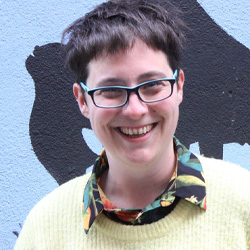

Andrea Momoitio has a degree in journalism from the University of the Basque Country (UPV/EHU), a Master’s in Feminist and Gender Studies and in Digital Journalism from the same university and is one of the founders of the feminist digital magazine Pikara Magazine. She also collaborates in other publications such as Ctxt, El Salto, Periódico Diagonal, Público, Eldiario.es, La Madeja and Altaïr Magazine.
Since 2013 she has been giving conferences, workshops and talks on gender, feminism, communication, feminist journalism and social networks. She has published articles and reports in numerous publications including those named above and others such as Pueblos, Viento Sur, La Espiral and Cáscara Amarga.
In 2022 she released her first book, Lunatic, on the case of María Isabel Gutiérrez Velasco, who was found dead in a prison cell in Basauri in 1977, which led to prostitutes going on strike in Bilbao.
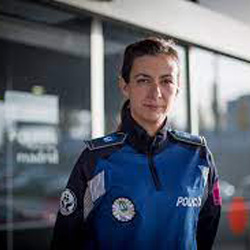

Marta Fernández de Ulloa has a degree in biology from the Autonomous University of Madrid. She joined Madrid Municipal Police Corps in 2002, rising to the rank of superintendent in 2007.
During her 20 years of service, she has a range of functions across the different positions she has held, having spent 15 of those years with the judicial police.
For the past decade, Ulloa has specialised in the field of gender violence, leading the Assistance and Protection Unit for Women, Children and the Elderly, while also being responsible for the Diversity Management Unit.
She has completed a number of postgraduate courses, most notably the master’s degree in Police Sciences at the University of Alcalá, specialising in the field of police‐judicial investigation, taking statements and writing technical reports, and providing assistance to victims and vulnerable groups.
She is a collaborating professor at the Community of Madrid’s Institute for Comprehensive Training in
Security and Emergencies.
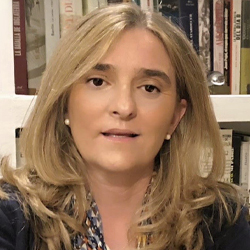

Lola Carranza Sánchez is Head of the Digital Law Department and Technology Businesses at Montero | Aramburu Abogados. With a degree in law from the University of Seville and a master’s degree in human resource management from the Andalusian Business School, Carranza Sánchez is a lawyer specialising in digital law and boasts more than twenty years of experience providing legal advice and training to companies.
For eighteen years she was a senior lawyer for the BT Group. She also offers advice on matters regarding regulatory compliance in digital law and technological innovation to technology companies, as drivers of the digital economy, and helps companies that are undergoing digital transformation adapt to the changes to their production model and new globalised relations
Carranza Sánchez is a professor of civil law on the law degree course and a professor of digital compliance on the master’s in Management of Digital Business and on the master’s in Cybersecurity for CISOs courses at Loyola University Andalusia, as well as a professor of IoT and metaverse on the Digital Law & Legal Tech diploma at CUNEF.
She is the data protection delegate for the Spanish public law corporation and for educational and financial centres, a mentor at the Civil Guard’s National CyberLeague and at WomanDigital, as well as a speaker at conventions, conferences, forums and radio programmes on digital law, data protection and privacy, cybersecurity and metaverse.
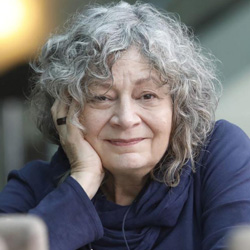

She received her PhD from the Department of Social Anthropology at the Queen’s University of Belfast in 1984. She is Professor Emeritus at the University of Brasilia, where she taught in the Department of Anthropology and in the Bioethics and Human Rights graduate programs. She is a Senior Researcher at the Brazilian National Council for Scientific Research (CNPq). Since 2018 he has held the Aníbal Quijano Chair at the Reina Sofía Museum in Madrid and in 2019 the National University of San Martín‐UNSAM of Argentina created the Rita Segato Chair of Inconvenient Thought under his direction. Currently, she is one of the directors of the International Course on Afro‐Latin American and Caribbean Studies, at the Latin American Council of Social Sciences (CLACSO).She has been a visiting researcher and has taught postgraduate seminars at numerous academic institutions in the United States, Europe, and Latin America. For two consecutive years, 2017 and 2018, the Spanish news agency EsGlobal included her among the most influential Ibero‐American intellectuals and at the 2018 Congress of the Latin American Studies Association (LASA) there was a session dedicated to a “conversation with Rita Segato” . In 2019 she was invited by the Menéndez y Pelayo International University to offer the prestigious Master Course “The author and his work” at the Palacio de la Magdalena, Santander, Spain. In 2018, he received the Latin American and Caribbean Prize for Social Sciences CLACSO 50 years. In 2021, he received the Frantz Fanon Award from the Caribbean Philosophical Association for his lifetime achievement. In 2022, he received the Daniel Cossio Villegas Prize for Social Sciences from the Colegio de México ‐ COLMEX. In 2018 he received the Silver Medal of San Ignacio de Loyola from the Jesuit Order at the Iberoamerican University of Mexico.
She has received honorary doctorates from the University of Salamanca, from the National Universities of Salta and Cuyo, from the Provincial Universities of Entre Ríos, Córdoba and Villa María, and in the future the honorary doctorate award ceremonies will be held from the universities. National University of Catamarca, Republic of El Salvador and Iberoamerican University of Mexico
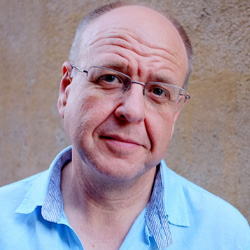

Manuel Serrano has a law degree from the University of Granada and is a member of the Regional Government of Andalusia’s Senior Body of General Administrators. She currently leads the Women’s Training and Employment Department at the Andalusian Women’s Institute.
She is an expert in auditing and remuneration registration and a professor on the University of Malaga’s University Expert in Agent of Equality Plans in Public and Private Entities course. Serrano has participated in conventions, conferences and seminars related to equal opportunities between women and men and in‐company equality and equality plans, organised by public and private entities and trade union organisations, at which she represents the Andalusian Women’s Institute (IAM).
Manuel Serrano is responsible for creating the content of the IAM’s online training catalogue on incompany equality and the “EQUIPA” service which provides equality advice to companies.
She oversaw the design, creation and implementation of the in‐company equality tools, including the Protocol for the Integration of a Gender Focus in Business Plans, Company Equality Diagnostic, and Create your Company’s Protocol for the Prevention of Sexual and Gender‐based Harassment, and she is the manager of the Companies Free From the Harassment of Women initiative. She currently manages the Andalusian Network of Conciliatory Entities (RAEC) and the Andalusian Regional Government’s Mark of Excellence in Equality (MAEI).
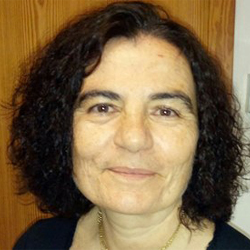

Victoria Ferrer is a professor of social psychology at the University of the Balearic Islands (UIB). She is a member of the “Gender Studies” research group and coordinator of the master’s degree in Equality Policies and Gender‐Based Violence Prevention and the PhD in Interdisciplinary Gender Studies at the same university.
She is the author of Feminism and Social Psychology (Ed. Grupo 5, 2017) and co‐author of Violence against women: love as an alibi (Ed. Anthropos, 2013), The patriarchal labyrinth (Ed. Anthropos, 2006), The voice of the invisible. The victims of a bad love that kills (Ed. Cátedra, Feminisms Collection, 2002), and History of misogyny (Ed. Anthropos, 1999, 2020), among others.
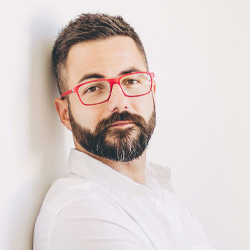

Borja Rodríguez Núñez is a psychologist, sexologist and couples therapist from a gender perspective. He is an expert in preventing and detecting gender‐based violence and providing support to those affected by it. In addition, he is a mediator, educator and sexual trainer, specialising in diverse masculinities and in the psychology of sexual diversity.
Desde 2014 y hasta febrero de 2020 ha sido el coordinador del “Área de Hombres Condenados por Violencia de Género” para Fundación ASPACIA en Málaga, llevando grupos de reeducación de agresores en medida alternativa de prisión. También durante cuatro años y hasta mediados de 2020 pasaba consulta como Terapeuta Sexual y de Parejas en el Instituto de Sexología
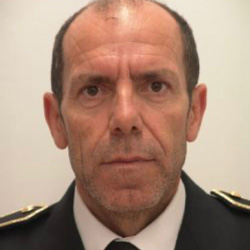

Francisco Plaza Fernández has a University Expert Degree in Criminology from the University of Malaga. His intervention as an agent of the Malaga Local Police is focused on the daily operations of the police protection groups.
He joined the Local Police Corps in 1986. A decade later he began to form part of the Investigation and Protection Group specializing in Minors and Mistreatment with instruction of Attested until 2015. Since 2017, after the Collaboration Protocol with the Ministry of the Interior, begins to form part of the VioGén Group.


President of Kellys Unión Málaga. Salesperson in a number of fields and formats, hairdresser, chambermaid, deputy housekeeper and housekeeper.
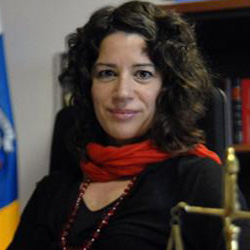

Gloria Poyatos Matas is a judge specialising in social law at the Social Affairs Division of the Supreme Court of Justice, Las Palmas. She was an employment lawyer at the Workers’ Commissions Spanish trade union from 1994 to 2009, a professor at the School of Legal Practice of the Girona Bar Association
until 2009 and an associate professor at the University of Girona.
She obtained a PhD in law from the University of Murcia, and she a is promoter of the Canarian Association of Iuslaboralistas (2013), of which she has been president since its constitution until now. Poyatos Mata is co‐founder of the Association of Women Judges of Spain (AMJE) and was its president from 2015 to 2019.
Likewise, she was the promoter of the AMJE’s Educating in Equal Justice Programme (2016), awarded by the Delegation of the Government of Spain in 2018, and she has been tasked with promoting it in Lanzarote from 2016 to the present day.
In June 2017, the ruling passed down by the High Court of Justice of the Canary Islands on 7 March 2017 (Appeal 1027/2016), in which she was a reporting judge, received the international gold mallet award granted by the entity Women’s Link Worldwide, awarded for the court ruling which has the most positive impact on the lives of women and girls and on the protection of their rights.
Since May 2018, Poyatos Matas has served as the Regional Director for Europe, North Africa and the Middle East of the International Association of Women Judges (IAWJ).
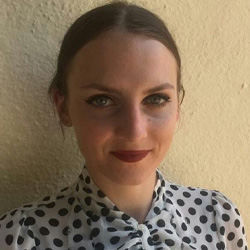

Clara Checa, born in Granada, enters the world of flamenco from a very young age.
At a very young age he moved to Seville where he was able to train at the Andalusian Dance Center in the Spanish dance modality.
Subsequently, he has worked in various companies such as the Compañía Sevillana de Zarzuela, the Anabel Veloso Company, the Carmen Cortes Company or the Eduardo Guerrero Company, thus creating a career that combines work on stage with his presence in Madrid tablaos such as Las Tablas or Café Zrhyab.
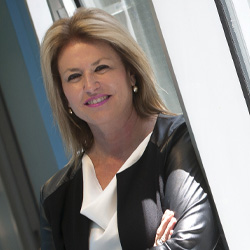

Flor de Torres graduated in law from the University of Granada in 1984. After working as a lawyer for a year, she secured a position as a public prosecutor at the Malaga Provincial Public Prosecutor’s Office in 1987, taking office in 1988. In 2003 she was appointed as the Lead Public Prosecutor for Violence Against Women in Malaga, and since 2005 she has been the Delegated Prosecutor in this area.
Given her specialisation in gender‐based violence, since 2010 she has been the Delegated Prosecutor for Violence Against Women of the Supreme Prosecutor’s Office of Andalusia, a position that she combines with being an honorary professor at the Department of Public Law at the University of Malaga, collaborating on research projects related to gender equality and violence.
She has represented the Public Prosecutor’s Office and served as an expert in the Committees of the Congress of Deputies and the Senate for the drawing up of the State Pact Against Gender Violence in 2017, and as an expert on gender‐based violence, as well as in the same quality in the Parliament of Andalusia when she presented the Andalusian Report on Violence Against Women.
She has received numerous professional and social distinctions for her fight against gender‐based violence. Among them, Flor de Torres was awarded the Medal of Andalusia in 2014 for her work fighting against gender‐based violence, and her career in terms of equality has been an achievement for women.
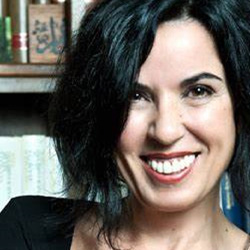

Beatriz de Vicente de Castro is a criminal lawyer and criminologist, specializing in violent and sexual crime. Legal Shift Lawyer since 2000, criminal shift, special, accused of gender violence, legal assistance to detainees, penitentiary, Jury Court and Cassation.
De Vicente de Castro has been a Professor of Criminology at the Camilo José Cela University since 2003, former vice‐dean of the Madrid College of Criminology and a Master’s in criminal investigation and analysis. Since 1998, he has provided criminological and legal advice to various media outlets.
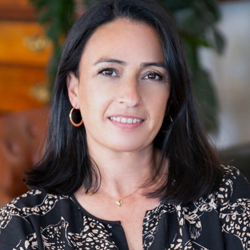

She is the founder and CEO of the company Comunicaciones y Producciones del Sur CPS S.L., which specialises in strategic communication and marketing consultancy private and public companies and organisations. She is dedicated to gender equality, entrepreneurship,
ICT and the environment, which has led to the CPS Agency becoming a pioneer in organising sustainable events. She is the founder and, since 1998, Director of Cibersur, the first media outlet specialising in innovation, science and technology, and which boasts a daily digital edition and a TV channel. She has won numerous prizes, most notably the Andalusia Prize for Journalism in 2001, the ASIMELEC Award in 2008, the FLACEMA Award in 2009, the ASI Award in 2009, the Global TELECENTROS Award in 2011, the Ingenio Award for best technological communication and dissemination project in 2018, the Blogosur Award in 2018 celebrating 20 years of Cibersur, and the Pyrsel Award for Andalusians opening the way in 2019, recognising her work over the years.
It is worth mentioning her constant work promoting the development of the Andalusian information society as a whole and, in particular, the equality of women within this society, as well as her continuous work in support of female entrepreneurship in the ICT and the environmental sectors. She boasts over 20 years of experience providing businessmen and women, directors and entrepreneurs with training in communication and speaking. She is a mentor in communication and marketing at a number of different business schools, and she currently participates in the “Open Future ‐ El Cubo” start‐up accelerator programme run by Telefónica. She is a promoter of the Metaverse Observatory of Spain, President of the Andalusian Association of Communication Companies (AACOM), founding member of the masmujeres forum, Vice‐president of the Andalusian Association of Environmental Entrepreneurs (ANSEMAC) and member of a number of consultative committees. She is an expert in studies on the information and communication society in Andalusia, the second modernisation of Andalusia, the ASI Plan, the digital strategy of Andalusia and impulse strategy of the Andalusian ICT sector, as well as a collaborator of the Mujeres en Red feminist newspaper.


Esperanza Ramírez Paez. Export Manager of Bodegas Páez Morilla. Master in Sociology of population, territory and migrations. Diploma in Social Work from the UCA. Advanced technician of Sherry wine and International Trade.
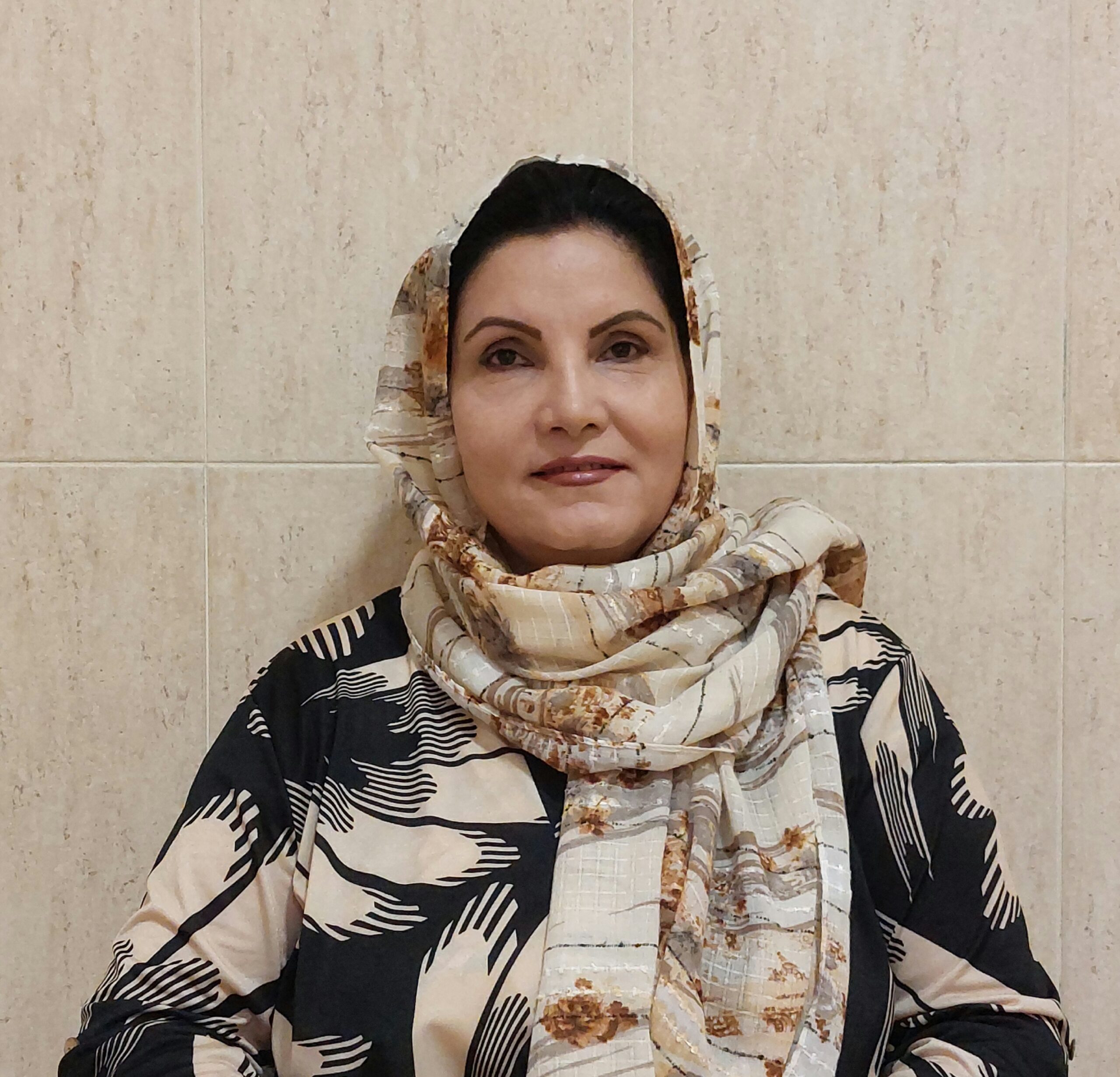

Judge Suraya Ahmadyar was born in 1966 in Kabul. He began studying law and political science at Kabul University in 1985 and graduated in this field in 1989. He started working at the Supreme Court and successfully passed the judicial traineeship course. She continued to work during the first period of
the Taliban in the territory in 1996 and then had to flee the country, where she returned in 2022. She started working as a judge in different courts, such as criminal courts, public security division of the court of appeals and , finally, as the head of the traffic affairs division of the court of first instance, until the second term of the Taliban in the territory, on August 15, 2021. Due to the problems and risks faced by the population with the takeover by the Taliban, she had to be evacuated from Afghanistan on October 11, 2021. During her 22‐year career, she went through many judicial functions and became a member of the IAWJ (International Association of Women Judges).


María Huertas Zarco is a psychiatrist. She has been head of the Mental Health Service of Department 9 of the Valencian Community since 1986. Feminist and pacifist.
Promoter and co‐director of the master’s degree in Rehabilitation and Social and Labour Reintegration of People with Severe Mental Illnesses (SMI) at the University of Valencia from 1987 to 2005. Promoter and director of the Albanta (1995–1997), Ágora (1997–1999) and Alalba (2002–2005) programmes for the rehabilitation and socio‐occupational reinsertion of people with severe mental illnesses, which were
financed by the European Social Fund. Promoter and member of the National Association of Women’s Health since 1986. Promoter and member of the Women in Black international network since 1992. She is also an advisor to various programmes run by the Valencian Health Department and the Women’s Institute of Madrid. She is the recipient of numerous awards, including the Progressive Women’s Association Award, the award for the best rehabilitation program for people with SMIs from the Ashoka Foundation.
She worked as a resident and later as a physician associate at the psychiatric hospital in Bétera, Valencia from 1973 to 1980, during which time she gained invaluable experience in anti‐psychiatry. From 1980 to 2014 she was coordinator of the Community Mental Health Team in Department 9 of the Valencian Community, where she also served as Head of Service from 1986.
She is the author of Nine Names, which was published by Temporal in 2021, and co‐author of the article Psychosocial rehabilitation programmes and socio‐occupational reinsertion for people with severe mental illnesses (Información Psicológica journal, 2009), Community Mental Health. Psychosocial rehabilitation and socio‐occupational reinsertion (Nau Books, 2000), Women and mental health. A gender perspective (Familia y Salud, 1998), Violence against women: Family violence/Structural violence (Familia y Salud, 1998).
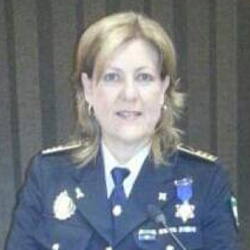

Francisca Borrero Núñez has been Inspector of Almonte Local Police since 2011, being the first woman to hold such a position in Andalusia. She has a degree in labour sciences and a diploma in labour relations and criminology, in addition to a master’s degree in gender, identity and citizenship.
Borrego is the manager and safety coordinator of Plan Aldea and Plan Romero. She is a teacher and coordinates large‐scale drills for newly admitted students in the police forces in Andalusia, as well as various campaigns against gender violence.
The chief inspector is a member of the Andalusian Local Police Chiefs and Executives Association (AJDEPLA), as well as the National Union of Local Police Chiefs and Executives (UNIJEPOL), forming part of the working group on the equality of security forces.


María José Escalona Cuaresma is a professor at the University of Seville’s Department of Computer Languages and Systems. She is the director of the ES3 group (Engineering and Science and Software Systems), a group recognised in the Andalusian research plan as PAIDI TIC 021.
She has published a large number of articles and directed regional, national and international projects, all in the field of software engineering, with her work on the relationship between universities and business being particularly significant. In addition, Escalona Cuaresma has supervised several doctoral theses, many of which focus on the business world, and has worked profusely on the early awakening of STEM careers and especially on introducing girls and women to technology.
With regards the metaverse, her participation in the first metaverse observatory in the autonomous community of Andalusia is significant, in which she represents the field of education. She has been recognised for her work with several awards throughout her career.


María Ángeles Cayuela Campoy has always had a strong connection with fishing and the sea, belonging to a family linked to the fishing sector for several generations.
Cayuela Campoy is the first woman to chair a shipowners’ association at any of the ports in Andalusia, the Association of Fishing Professionals of Almería (ASOPESCA). She is also the secretary of the Almería Women’s Fishing Association (Galatea). She presides over the Andalusian Association of Women in the Fishing Sector (AndMuPes) and is the current vice‐president of the National Association of Women in the Fishing Sector (ANMUPESCA).
She splits her time between working as a lawyer – where she focuses on the public defence of gender violence issues, immigration and minors – and running a fishing trawler that she owns in the Andalusian Mediterranean.
Cayuela Campoy has gained all the qualifications and specialisations needed to oversee fishing operations on‐board her boat (local fishing boat skipper, radio operator, first aid, deep‐sea fishing and basic training).


Eva Fernández Urbón is the National Secretary for Equality and Social Responsibility, as well as a member of the Spanish Independent Trade Union Federation and Federation of Officials (CSIF) trade union and President of the SOC Committee (employment and social affairs) at CESI Europe (European
Confederation of Independent Trade Unions).
She gained a degree in foreign languages from the University of Valladolid and a master’s degree in Human Resource Management from UDIMA. She has been granted the status of Agent for Equal Opportunities Between Women and Men by Miguel de Cervantes European University. She is also a member of the FEMM Committee (women’s rights and gender equality) at CESI Europe, of the European Women’s Lobby (EWL) and of the Sustainable Development Council for the Government of Spain’s 2030 Agenda, as well as of the Ministry of Equality’s Advisory Board for Care
Her publications include Trade union delegate guide to negotiating equality plans (Etiograf. SL, 2022) and The importance of cross‐cutting themes in the classroom, released by the Institute of Scientific and Ecological Research in 2013.